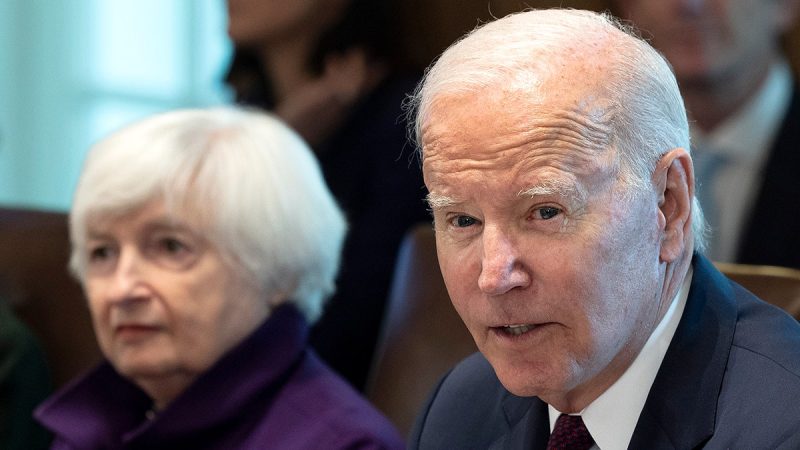May 15, 2024
Breaking Down the Impact: A New BRICS Currency vs. the Mighty US Dollar (2024 Update)
 The potential introduction of a new BRICS currency could have significant implications for the US dollar and the global financial landscape. As of 2024, the BRICS countries - Brazil, Russia, India, China, and South Africa - have been exploring the idea of creating a common currency for trade settlement and financial transactions among themselves. This move could potentially challenge the dominance of the US dollar as the world's primary reserve currency. Let us delve into how the introduction of a new BRICS currency could affect the US dollar:
1. **Diversification of Reserves**: The launch of a new BRICS currency would provide an alternative to the US dollar for central banks and governments to hold as part of their foreign exchange reserves. This could lead to a gradual shift away from the dollar, reducing its status as the dominant reserve currency and potentially weakening its value in global markets.
2. **Impact on Trade Settlement**: If the BRICS countries decide to denominate their trade transactions in the new currency, it could reduce the demand for the US dollar in international trade. This could lead to a decrease in the use of the dollar for cross-border transactions, impacting its value and influence in the global economy.
3. **Geopolitical Implications**: The introduction of a new BRICS currency could enhance the economic power and influence of these emerging market economies, challenging the traditional dominance of Western countries, including the United States. This could lead to a rebalancing of global economic power and influence, potentially affecting the geopolitical dynamics between the BRICS countries and the US.
4. **Financial Market Impact**: The launch of a new BRICS currency could create volatility in the financial markets, especially in currency and bond markets. Investors may reposition their portfolios in response to the introduction of the new currency, leading to fluctuations in exchange rates and interest rates, which could impact the value of the US dollar.
5. **Long-Term Effects**: Over the long term, the introduction of a new BRICS currency could potentially weaken the position of the US dollar as the primary global reserve currency. This could have implications for the US economy, including its ability to finance debt, its trade competitiveness, and its overall economic influence on the global stage.
In conclusion, the introduction of a new BRICS currency could have significant implications for the US dollar, potentially challenging its dominance as the world's primary reserve currency and affecting its value and influence in the global economy. As the BRICS countries continue to explore this possibility, it will be important to monitor developments and assess the potential impact on the US dollar and the broader financial landscape.
The potential introduction of a new BRICS currency could have significant implications for the US dollar and the global financial landscape. As of 2024, the BRICS countries - Brazil, Russia, India, China, and South Africa - have been exploring the idea of creating a common currency for trade settlement and financial transactions among themselves. This move could potentially challenge the dominance of the US dollar as the world's primary reserve currency. Let us delve into how the introduction of a new BRICS currency could affect the US dollar:
1. **Diversification of Reserves**: The launch of a new BRICS currency would provide an alternative to the US dollar for central banks and governments to hold as part of their foreign exchange reserves. This could lead to a gradual shift away from the dollar, reducing its status as the dominant reserve currency and potentially weakening its value in global markets.
2. **Impact on Trade Settlement**: If the BRICS countries decide to denominate their trade transactions in the new currency, it could reduce the demand for the US dollar in international trade. This could lead to a decrease in the use of the dollar for cross-border transactions, impacting its value and influence in the global economy.
3. **Geopolitical Implications**: The introduction of a new BRICS currency could enhance the economic power and influence of these emerging market economies, challenging the traditional dominance of Western countries, including the United States. This could lead to a rebalancing of global economic power and influence, potentially affecting the geopolitical dynamics between the BRICS countries and the US.
4. **Financial Market Impact**: The launch of a new BRICS currency could create volatility in the financial markets, especially in currency and bond markets. Investors may reposition their portfolios in response to the introduction of the new currency, leading to fluctuations in exchange rates and interest rates, which could impact the value of the US dollar.
5. **Long-Term Effects**: Over the long term, the introduction of a new BRICS currency could potentially weaken the position of the US dollar as the primary global reserve currency. This could have implications for the US economy, including its ability to finance debt, its trade competitiveness, and its overall economic influence on the global stage.
In conclusion, the introduction of a new BRICS currency could have significant implications for the US dollar, potentially challenging its dominance as the world's primary reserve currency and affecting its value and influence in the global economy. As the BRICS countries continue to explore this possibility, it will be important to monitor developments and assess the potential impact on the US dollar and the broader financial landscape.
If you would like to delve into the world of investment topics , go to our partner project Wall Street Wizardry


